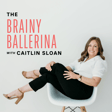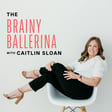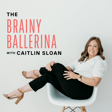
30. The Path to Artistic Fulfillment in a Dance Career with Michaela King
Michaela King is a professional dancer with Madison Ballet. She has also danced with Pittsburgh Ballet Theatre, Suzanne Farrell Ballet and in the musical, On the Town, as a guest artist with Capitol City Theatre. Michaela is currently pursuing her bachelor’s degree in political science at The University of Wisconsin Madison.
In this episode, we chat about Michaela’s experience starting her career with a larger ballet company and the artistic and personal growth that came with moving to a smaller company, embracing contemporary works, and stepping into lead roles. We also get into her non-traditional path to a college degree and how she balances her dance career with academics. Michaela is one of my favorite role models for dancers - her story is a testament to resilience, passion, and the power of embracing change!
Key Moments:
- Early dance training [1:35]
- Training at Pittsburgh Ballet Theatre’s Grad Program and getting her first contract with PBT [4:05]
- Making the move to Madison Ballet [14:40]
- Michaela’s favorite role to dance in her professional career [25:13]
- Performing in her first musical, On The Town [28:25]
- How Michaela is earning her college degree while dancing professionally [32:04]
- Michaela’s passions outside of dance [36:02]
- Her biggest piece of advice for dancers pursuing a career [38:20]
Connect with Michaela:
INSTAGRAM: instagram.com/michaelaking94
Links and Resources:
Get your copy of The Ultimate Audition Guide
The College Dance Decision: thebrainyballerina.com/the-college-dance-decision
1-1 Career Mentoring: book your complimentary career call
Let’s connect!
My WEBSITE: thebrainyballerina.com
INSTAGRAM: instagram.com/thebrainyballerina
Questions/comments? Email me at caitlin@thebrainyballerina.com


